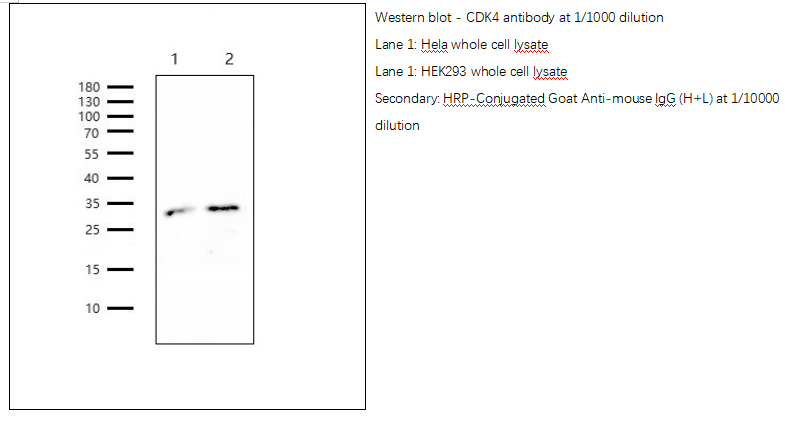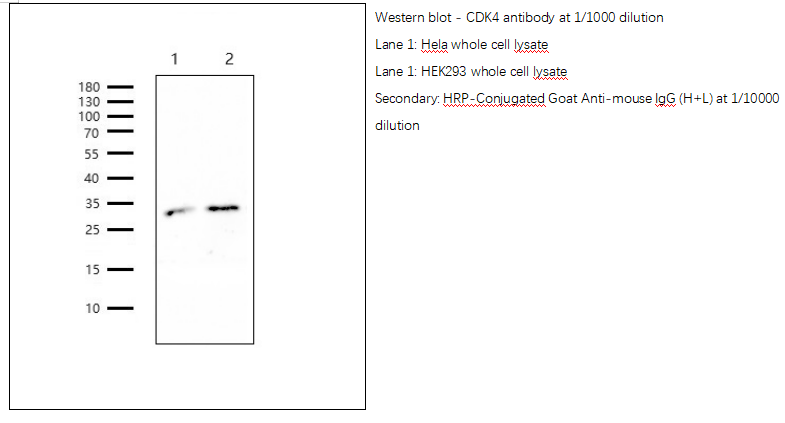CDK4 antibody
Catalog Number:PP1047
- 产品信息
- 相关图片
- 常见问题
|
Basic infomation |
source |
Mouse |
|
Clonality |
Polyclonal |
|
|
Isotype |
IgG |
|
|
Reactivity |
H M R |
|
|
MW (kDa) |
34kDa |
|
|
Purification |
Antigen affinity purfication |
|
|
UniProt ID |
P11802 |
|
|
NCBI Gene |
1019 |
|
|
|
|
|
|
Applications |
Tested Applications |
WB, |
|
Cited Applications |
WB, IHC, IF |
|
|
Product Usage Information |
Western Blotting |
1:1000-1:2000 |
|
Immunohistochemistry |
1:200-1:400 |
|
|
Immunofluorescence |
1:200-1:400 |
|
|
|
|
|
|
Storage |
PBS with 50% glycerol and less than 0.02% sodium azide |
|
|
Store at –20°C, stable for one year after shipment |
||
|
Do not aliquot the antibody |
||
|
|
||
|
Background |
The protein encoded by this gene is a member of the Ser/Thr protein kinase family. This protein is highly similar to the gene products of S. cerevisiae cdc28 and S. pombe cdc2. It is a catalytic subunit of the protein kinase complex that is important for cell cycle G1 phase progression. The activity of this kinase is restricted to the G1-S phase, which is controlled by the regulatory subunits D-type cyclins and CDK inhibitor p16(INK4a). This kinase was shown to be responsible for the phosphorylation of retinoblastoma gene product (Rb). Mutations in this gene as well as in its related proteins including D-type cyclins, p16(INK4a) and Rb were all found to be associated with tumorigenesis of a variety of cancers. Multiple polyadenylation sites of this gene have been reported. |
|
|
|
|
|
|
Abbreviation |
H: human M: mouse R: rat Rb: rabbit Hm: hamster Mk: monkey Vir: virus C: chicken Z: zebrafish Dg: dog Pg: pig Hr: horse |
|



 返回列表
返回列表